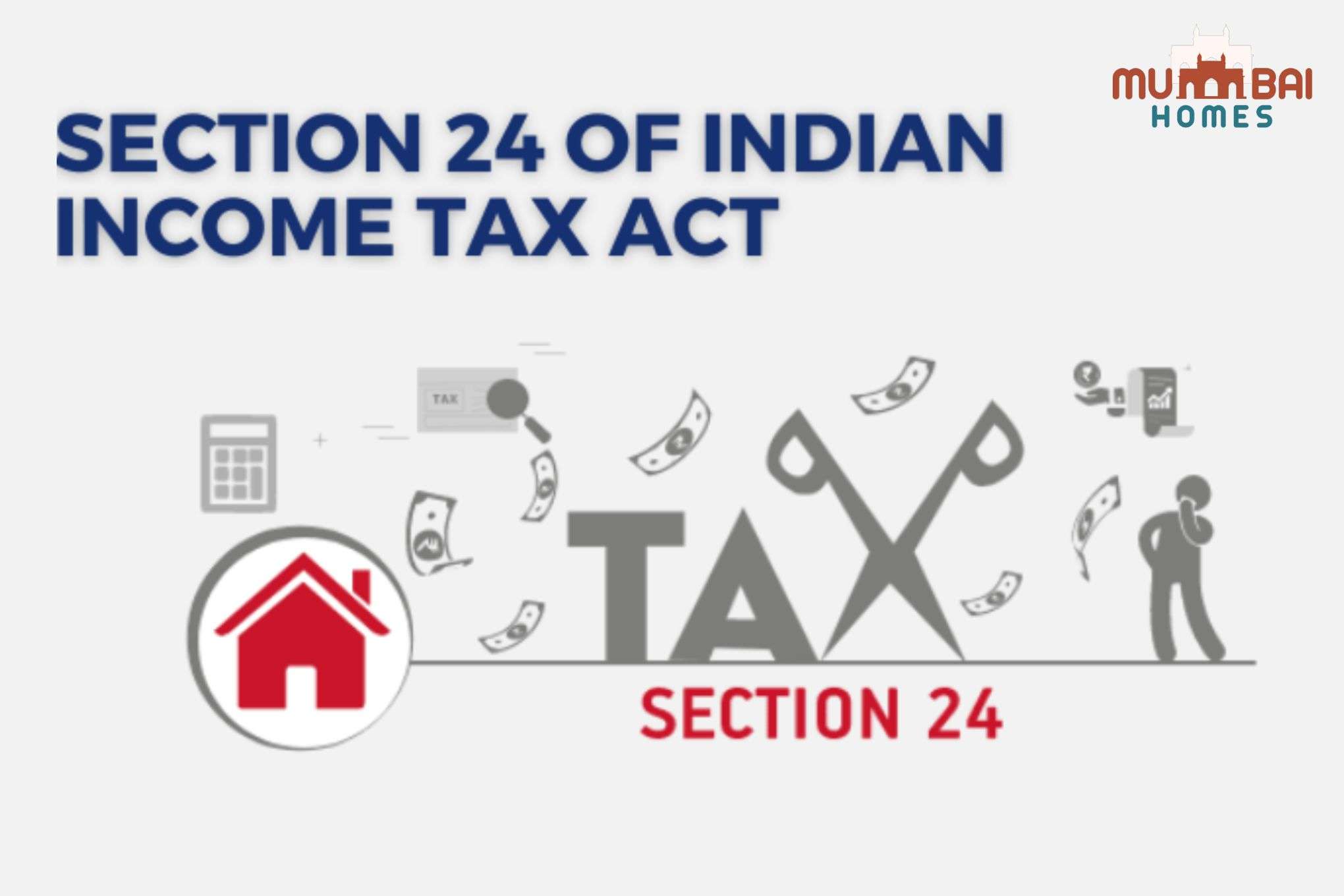What Taxpayers should know about Section 24 Act of the Income Tax Act?
The Income Tax Act of 1961 is an essential regulation that governs the taxation device in India. It outlines diverse provisions and policies regarding earnings tax computation and price. Among these provisions, Section 24 holds considerable significance for taxpayers. Taxpayers must be properly versed with the provisions of Section 24 Act of the Income Tax Act, as it relates to the deduction of interest on housing loans and impacts their taxable earnings.
Section 24 of the Income Tax Act:
Section 24 Act of the Income Tax Act encompasses two subsections – Section 24(b) and Section 24(c).
Section 24(b) – Interest on Housing Loan
Deduction on Interest: Taxpayers can declare a deduction of the interest paid on a housing loan for the acquisition, construction, restoration, or protection of a residential property. This deduction is applicable for each self-occupied and permit-out house.
Self-Occupied Property: For self-occupied homes, the maximum deduction allowed is up to ₹2 lakhs according to the monetary year. This manner that taxpayers can deduct the interest paid on their housing loan, as much as this designated limit, from their taxable earnings.
Let-Out Property: There isn’t any higher restriction on the deduction for interest paid on a housing loan for allow-out homes. Taxpayers can declare the actual interest paid or ₹2 lakhs, whichever is decreased. This provision permits people who generate rental income from their property to say the whole amount of interest paid as a deduction.
Pre-Construction Period: If the construction or acquisition of the property isn’t finished within 5 years, the maximum deduction on interest reduces to ₹30,000 per financial 12 months for loans taken earlier than April 1, 1999.
Multiple Borrowers: Section 24 Act of the Income Tax Act 24(b) includes multiple borrows which states each borrower of a housing mortgage can personally declare a deduction primarily based on their percentage in the loan and belongings possession, problem to the maximum restriction of ₹2 lakhs per economic year. This method that if there are multiple debtors for a housing mortgage, every borrower can claim a deduction in percentage to their share in the loan and the possession of the belongings.
Section 24(c) – Deduction on Principal Repayment:
Deduction on Principal: Taxpayers can claim a deduction on the reimbursement of the essential quantity of a housing loan underneath Section 80C, the challenge to a maximum restriction of ₹1.Five lakhs in keeping with monetary 12 months.
Joint Ownership: Each co-proprietor of a property and housing mortgage can declare a character deduction at the major compensation based on their proportion, as much as the restriction of ₹1.5 lakhs according to financial yr. This provision ensures that each co-owner can avail of the tax advantage associated with the predominant reimbursement made with their aid of them.
Transfer of Property: In Section 24 of the Income Tax Act 24(C) there is a transfer of property which covers If the assets are transferred, any deduction claimed on fundamental compensation in previous years might be reversed and added to the taxable income within the year of a switch. This guarantees that taxpayers no longer hold to claim deductions on an asset for which they’re now not financially responsible.
First-Time Homebuyers: First-time homebuyers can avail of additional deductions on interests and most important repayment below Section 80EE and Section 80EEA, respectively, subject to certain conditions and boundaries. These extra deductions are aimed at encouraging homeownership among first-time consumers by presenting them with additional tax advantages.
Tax Benefits: Deductions on foremost reimbursement assist taxpayers reduce their taxable profits and optimize their tax-making plans related to housing loans. By claiming this deduction, taxpayers can lower their ordinary tax legal responsibility and effectively control their budget related to housing loan repayments.
Conclusion:
Section 24 Act of the Income Tax Act plays an important function in figuring out the tax implications related to housing loans for taxpayers in India. Understanding its provisions is essential for individuals who’ve availed or plan to avail of housing loans. By leveraging the deductions to be had under Section 24 Act of the Income Tax Act.
4, taxpayers can optimize their tax planning, lessen their tax legal responsibility, and sell homeownership. It is really useful for taxpayers to visit tax specialists or consult with the tax professionals’ recommendations provided by way of the Income Tax Department to make sure accurate and compliant submission of profits tax returns.
FAQ:
1. Can I declare a deduction on the interest paid on my housing loan for belongings that I live in?
Answer: Yes, you could claim a deduction on the interest paid on your housing mortgage for self-occupied properties, as much as the limit of ₹2 lakhs consistent with the monetary year.
2. Are there any additional tax benefits for first-time homebuyers?
Answer: Yes, first-time homebuyers can avail of extra deductions on both interest and foremost compensation below Section 80EE and Section 80EEA, respectively, situation to precise conditions and bounds.
3. Are there any particular situations for claiming deductions on housing loans for first-time homebuyers?
Answer: Yes, first-time homebuyers can avail of additional deductions on the interest and predominant compensation below Section 80EE and Section 80EEA, respectively, concern to sure situations and limits set via the authorities.




